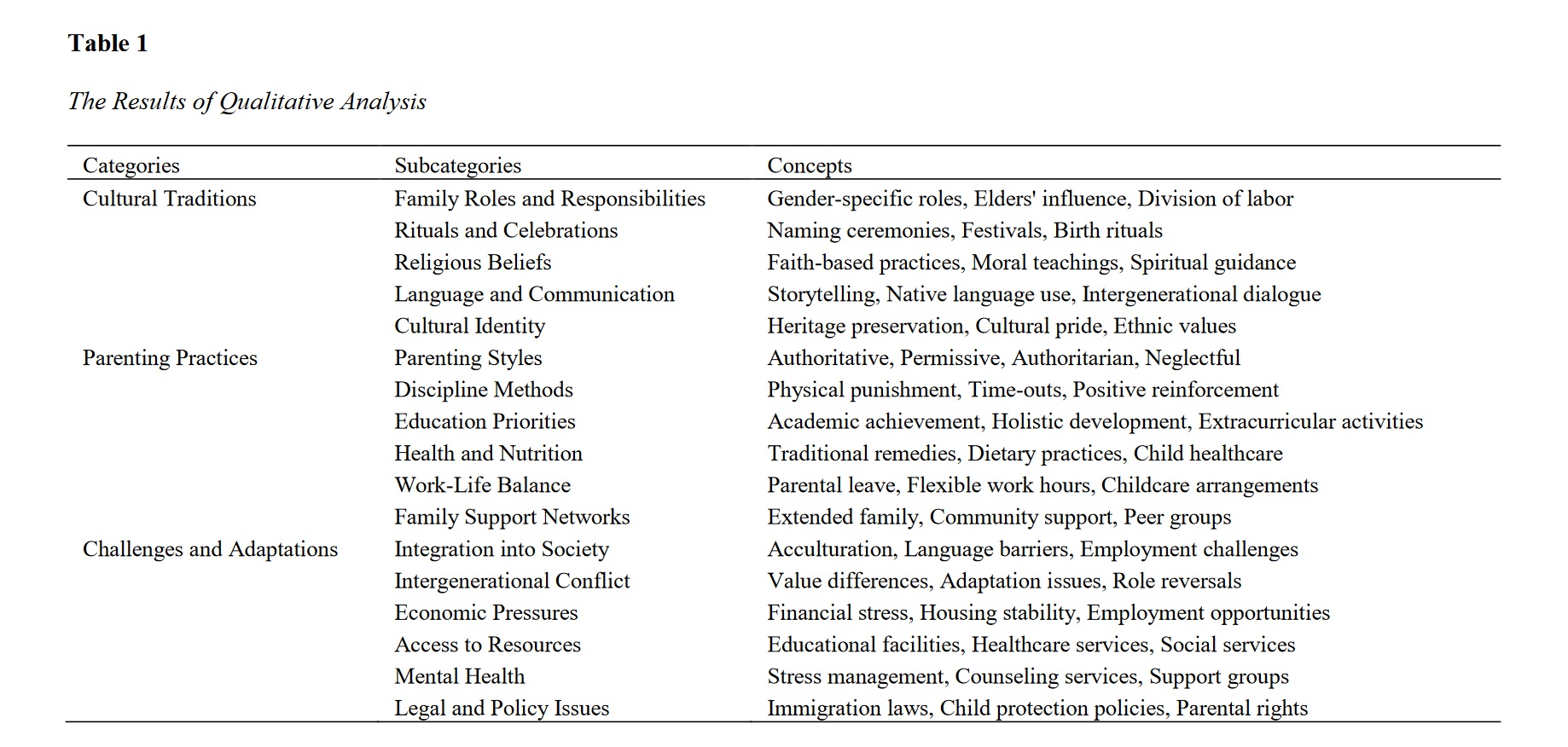Cultural Influences on Perceptions of Parenthood and Family Life
Keywords:
Cultural influences, parenthood, family life, qualitative research, semi-structured interviews, parenting practices, cultural traditions, challenges and adaptationsAbstract
Objective: The objective of this study is to explore the cultural influences on perceptions of parenthood and family life. It aims to understand how cultural norms, values, and practices shape parenting roles, responsibilities, and challenges among parents from diverse backgrounds.
Method: This qualitative study utilized semi-structured interviews to gather data from 28 participants representing various cultural backgrounds. Participants were recruited through community centers, cultural organizations, and social media platforms. The interviews were transcribed and analyzed using NVivo software, following the principle of theoretical saturation to ensure comprehensive data collection. Thematic analysis was employed to identify and analyze patterns and themes related to cultural influences on parenthood.
Results: The analysis revealed three main themes: Cultural Traditions, Parenting Practices, and Challenges and Adaptations. Cultural traditions influenced family roles, rituals, religious beliefs, language, and cultural identity. Parenting practices varied widely, encompassing diverse parenting styles, discipline methods, education priorities, health and nutrition, work-life balance, and family support networks. Participants also faced significant challenges in integrating into new societies, managing intergenerational conflicts, economic pressures, accessing resources, and addressing mental health and legal issues.
Conclusion: Cultural influences play a crucial role in shaping perceptions and practices of parenthood and family life. This study highlights the need for culturally sensitive approaches in supporting parents and children from diverse backgrounds. The findings underscore the importance of inclusive policies and practices that address the unique needs of culturally diverse families, promoting equitable access to resources and support. Further research is recommended to explore the dynamic nature of cultural influences on parenting and to develop comprehensive strategies for supporting diverse family structures.
Downloads

Downloads
Additional Files
Published
Issue
Section
License
Copyright (c) 2024 Sayed Ahmad Elwakeel, Mohammad Mahpur (Author); Nadereh Saadati (Corresponding Author)

This work is licensed under a Creative Commons Attribution-NonCommercial 4.0 International License.






